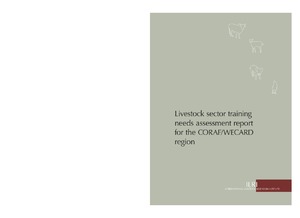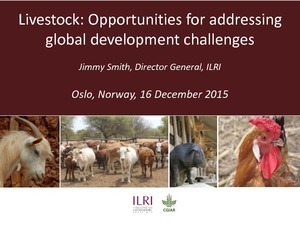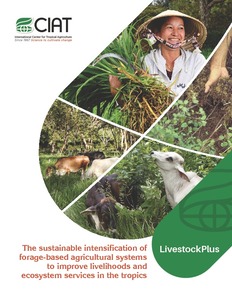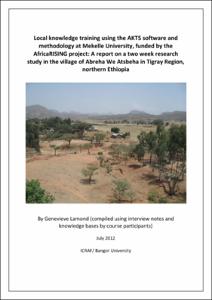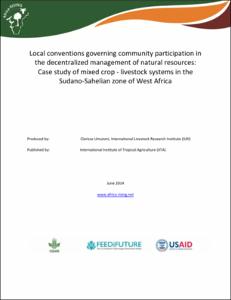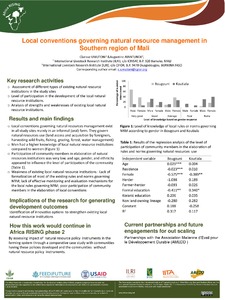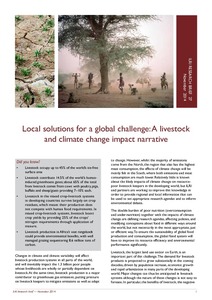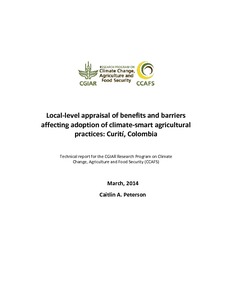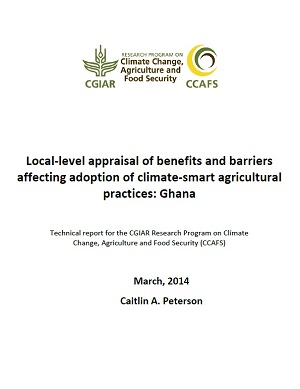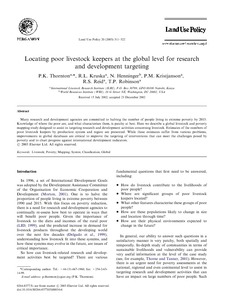rangelands
AGROVOC URI: http://aims.fao.org/aos/agrovoc/c_6448
Livestock systems research in Nigeria's subhumid zone
Compilation of proceedings of the 2nd ILCA/NAPRI symposium on livestock production in subhumid Nigeria discussing the ecology, vegetation & land use & development potential of the zone; traditional cattle & small ruminant production practices; research updates in livestock systems research, animal nutrition & feed production; extension & adoption of innovations; and future research.
LivestockPlus: The sustainable intensification of forage-based agricultural systems to improve livelihoods and ecosystem services in the tropics
As global demand for livestock products (such as meat, milk, and eggs) is expected to double by 2050, necessary
increases to future production must be reconciled with negative environmental impacts that livestock cause. This
paper describes the LivestockPlus concept and demonstrates how the sowing of improved forages can lead to the
sustainable intensification of mixed crop–forage–livestock–tree systems in the tropics by producing multiple social,
economic, and environmental benefits. Sustainable intensification not only improves the productivity of tropical
Livestock-water interactions: The case of Gumara Watershed in the Upper Blue Nile Basin, Ethiopia
Although water is a renewable natural resource, it has become insufficient at the global level. Unless the current efficiency level of water use can be increased, the trend of water shortages will become more serious. Among agricultural activities, livestock production is mostly considered an intensive water consuming operation although the knowledge and information related to livestock-water interaction app ears to be limited in scope.
Local knowledge training using the AKT5 software and methodology at Mekelle University, funded by the AfricaRISING project: A report on a two week research study in the village of Abreha We Atsbeha in Tigray Region, northern Ethiopia
Local conventions governing community participation in the decentralized management of natural resources: Case study of mixed crop-livestock systems in the Sudano-Sahelian zone of West Africa
A study was conducted in southern Mali to analyze and document existing local conventions governing the management of natural resources in the mixed crop-livestock systems. Both the Participatory Rural Appraisal (PRA) and individual interviews were conducted to collect information. In total, the group discussions included 27 administrative and technical services and 53 community authorities all genders combined, and individual surveys involving 165 farmers including 54 women.
Local-level appraisal of benefits and barriers affecting adoption of climate-smart agricultural practices: Curití, Colombia
Although Climate-Smart Agricultural (CSA) practices are expected to boost adaptive capacity, food security and climate change mitigation in resource poor, smallholder farming systems, the barriers that can restrict its uptake are diverse. This study investigated the barriers hindering CSA practice adoption in the Santander department of Colombia as well as farmer perceptions of practice benefits and disadvantages.
Local-level appraisal of benefits and barriers affecting adoption of climate-smart agricultural practices: Ghana
Although Climate-Smart Agricultural (CSA) practices are expected to boost adaptive capacity, food security and climate change mitigation in resource poor, smallholder farming systems, the barriers that can restrict their uptake are diverse. This study investigated the principal barriers hindering the adoption of CSA practices in the Upper West region of Ghana with the aim of inventorying existing uptake of CSA and providing recommendations to CCAFS as to practices with potential for further research or implementation on the farm level.
Locating poor livestock keepers at the global level for research and development targeting
Many research and development agencies are committed to halving the number of people living in extreme poverty by 2015. Knowledge of where the poor are, and what characterises them, is patchy at best. Here we describe a global livestock and poverty mapping study designed to assist in targeting research and development activities concerning livestock. Estimates of the numbers of poor livestock keepers by production system and region are presented.

